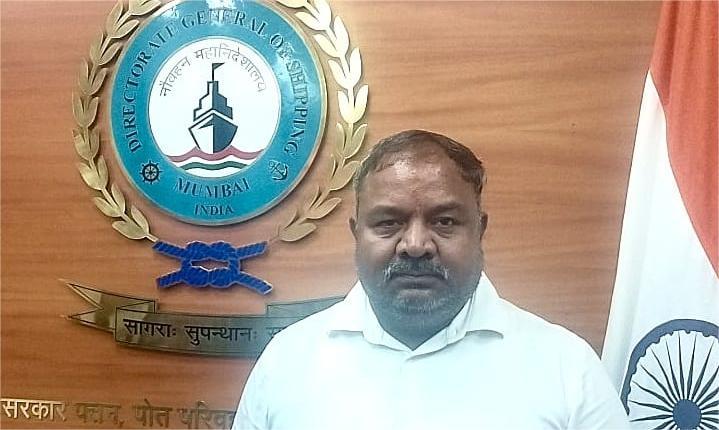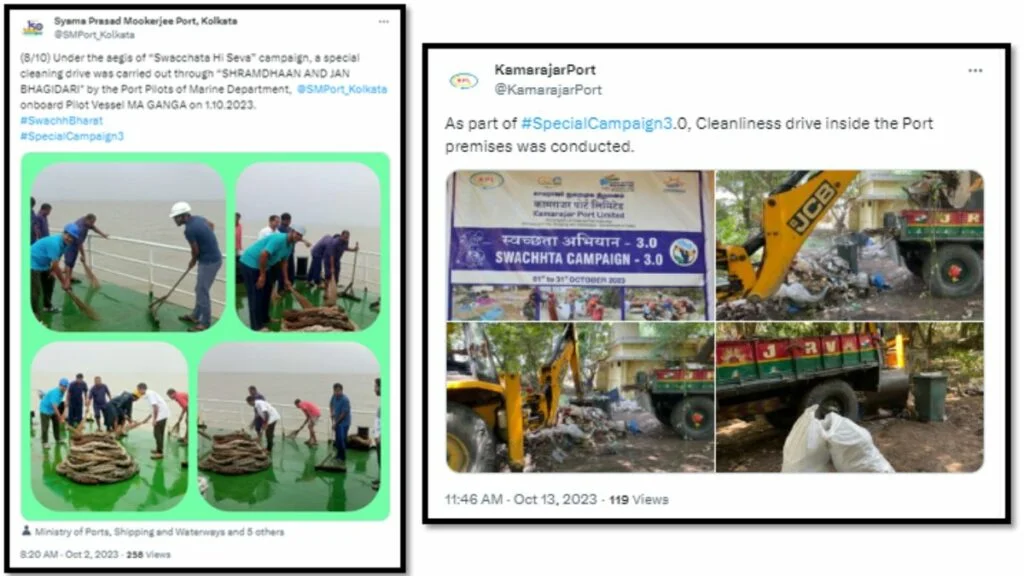Seafarers Unions Rise in Protest – Call out DG Shipping’s Unilateral Move as Unjust and Economically Devastating
Maritime News, Mumbai, India : The maritime community across India is up in arms following the issuance of DGS (NT/ENG) Circular No. 31 of 2025 by the Directorate General of Shipping (DG Shipping), which imposes stringent restrictions on Indian seafarers working with foreign Certificates of Competency (CoCs). The regulation, now under heavy fire, is being labeled as arbitrary, unjust, and deeply damaging to the livelihood of thousands of Indian seafarers.
This controversial move comes amid increasing concerns about fraudulent certifications issued by certain foreign maritime authorities. DG Shipping has cited a rising number of complaints and questions about the authenticity of CoCs issued by flag-of-convenience nations as the trigger for this new policy. However, critics argue the timing, lack of stakeholder engagement, and absence of a transition plan reflect deeper systemic failures.
What the Circular States: Strict Recognition Norms for Foreign CoCs
According to the circular:
Indian seafarers may only be recruited via RPSL agencies if they possess:
- Indian CoCs, or
- CoCs from countries that have bilateral agreements with India for mutual recognition.
These countries currently include:
- Malaysia
- United Arab Emirates (UAE)
- South Korea
- Sweden
- United Kingdom
- Iran
Additionally, Indian seafarers with CoC, Certificate of Proficiency (COP), or Modular Course certificates from Singapore, Australia, New Zealand, Canada, and Ireland may be accepted for employment, provided:
- The training was physically undertaken in those countries.
- The certificates are verified online from the issuing Maritime Administration before recruitment.
CoCs from countries like Honduras, Panama, Belize, Cook Islands, Liberia, Palau, Gabon, etc., are no longer accepted for Indian seafarers, even if these nations are on the IMO white list.
This sudden de-recognition has also raised concern in diplomatic circles. Experts warn that unilateral removal of recognition from IMO-compliant countries could strain India’s maritime trade relations, especially with flag states whose fleets employ large numbers of Indian seafarers.
On Monday, Global Seafarers’ Union of India, under the leadership of Gaurav Porwal, met with senior DG Shipping officials including Director General of Shipping IAS Shyam Jagannath and Nitin Mukesh, Deputy Nautical Advisor and Senior Deputy Director General (Technical), to submit a formal memorandum and voice their concerns. The union demanded an immediate rollback of the circular, warning of legal action and large-scale agitation if the demands are not addressed.
A Blow to the Backbone of Maritime India
As per the circular, Indian seafarers holding foreign CoCs—particularly from countries like Honduras, Panama, Belize, Cook Islands, Liberia, Palau, Gabon etc.—will no longer be allowed to sail unless their certifications are recognized by India. DG Shipping cites concerns over the authenticity of these certificates and the growing number of complaints, but critics argue that the move unfairly targets seafarers who have served on ships for decades without issue.
“This circular brings into question the credibility and years of work put in by thousands of competent Indian sailors. It seems more like a deliberate move to disrupt livelihoods than a safety reform,” said Gaurav Porwal, spokesperson of the Global Seafarers’ Union of India, in a statement to the media.
Who Stands to Lose?
The circular is feared to:
- Disqualify thousands of active Indian seafarers, many from underprivileged coastal communities.
- Destroy the career paths of sailors trained in smaller institutes and holding valid foreign CoCs.
- Jeopardize the future of maritime training academies that cater to economically weaker youth.
“Of a population of 150 crore, we have only 2.5 lakh active seafarers. Displacing even a fraction of them without a proper transition plan is both irresponsible and inhumane,” Porwal added.
Concerns of Foreign Influence and Internal Conflict of Interest
The union further accused some high-ranking DG Shipping officials of being influenced by foreign shipping lobbies or having conflicts of interest. There are claims that those who framed the circular may not themselves meet the very criteria they now seek to impose.
“The move reeks of foreign conspiracy aimed at weakening India’s maritime workforce and replacing them with cheaper labor from countries like China, Bangladesh, Vietnam, and Pakistan,” warned Porwal. “This must be investigated at the national level.”
What the Union Demands
- Immediate rollback or amendment of Circular 31.
- Transparency in the recognition process of foreign CoCs.
- Dialogue with maritime stakeholders, training institutes, and unions.
- Protection of Indian maritime jobs, especially those held by experienced, sea-hardened officers.
The union also emphasized that IMO (International Maritime Organization), not national bodies, should be the ultimate authority in validating CoCs. Targeting only the seafarers while failing to crack down on fraudulent agents and training institutes is unfair, they said.
Call for Nationwide Protest and Political Support
The Global Seafarers’ Union has announced plans to stage a large protest outside DG Shipping’s Mumbai office, supported by unions, maritime professionals, and seafarers’ families. Former Maharashtra MLC Balaram Patil is backing the movement, and efforts are underway to raise the issue in the upcoming Parliament Monsoon Session.
“From Mumbai to Delhi, this fight will reach every corridor of power,” the union said in a statement, adding that they are receiving overwhelming support from the Indian seafaring community.
Charting a Fair Course: What Governments Must Do
Immediate recommendations for justice and balance:
- Review and amend Circular 31 through stakeholder consultation.
- Publish a clear and updated list of recognized CoCs on DG Shipping’s website.
- Offer a grace period and structured equivalency pathway for existing seafarers.
- Crack down on fake institutes and rogue recruiters, not working-class sailors.
- Engage with IMO and affected foreign governments diplomatically, not unilaterally.
Officials from DG Shipping have so far remained silent on whether any changes to the circular are being considered. However, internal sources suggest that the backlash has triggered informal discussions about possible revisions or clarifications in the coming weeks.
Voices from Across the Industry
Other stakeholders echoed Porwal’s concerns:
- All India Seafarers Union (AISU) has scheduled a webinar and protest march, highlighting the lack of consultation with Indian maritime institutions before issuing the circular.
- Sailors’ Union of India (SUI) launched its #ShaktiPradarshan protest in CBD Belapur, warning of legal challenges.
- FSUI (Federation of Seafarers’ Union of India) accused the DGS of targeting the weakest in the system without offering reskilling or legal recourse.
“You don’t cut the ladder and blame the man for falling. We need rehabilitation, not humiliation,” a joint statement from FSUI read.
Reform or Retaliation?
While DG Shipping claims the circular ensures safety and merit, critics argue it is a reactionary, discriminatory measure that sidelines those already marginalized by the system.
If India aims to be a maritime superpower, it must protect its seafarers—not alienate them. Any policy affecting thousands must be inclusive, transparent, and fair.
“This is not just a job crisis—it’s a human crisis,” concluded Porwal. “We urge the government to choose dialogue over diktat.”



